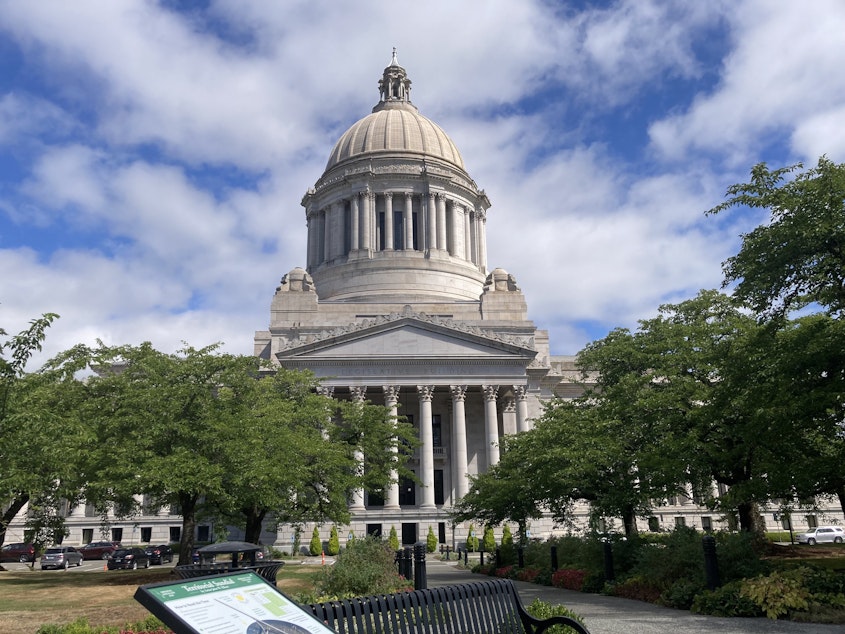Despite early attacks by Republicans, incumbent Democrats fared better than expected in WA legislative races

Washington legislative Republicans were taking stock Wednesday of their less than dazzling performance in the initial returns of the August primary.
In most of the key swing districts, incumbent Democrats were polling above 50 percent, and in some cases their Republican challengers were trailing by as much as 10 points.
Those weren’t the results Republicans, or for that matter many Democrats, expected heading into Tuesday’s primary. For months, Republican legislative leaders had been bullish about their ability to pick up seats and possibly even the majority in one or both chambers this year.
In July, after a round of positive polling, the Republican State Leadership Committee, a national group that helps elect GOP candidates to state legislatures, added Washington to its “Opportunities to Flip Chambers” list.
Leading up to the primary, Republican-backed independent expenditure campaigns poured money into key legislative districts. Negative ads hammered Democratic candidates on issues like rising crime, inflation and sky-high gas prices.
Sponsored
The spending wasn’t contained to just key swing districts. For instance, Public Disclosure Commission records show $233,000 was spent against incumbent Democrat Manka Dhingra in Kirkland’s 45th district — which used to be a swing district, but is now considered reliably Democratic.
But instead of badly bruising Democrats in advance of the general election, the unusual blast of early spending and ads didn’t appear to have the intended effect.
“Their attacks went nowhere,” said Adam Bartz, the executive director of the Washington Senate Democratic Campaign. “People are solidly embracing Democratic leadership of the Legislature.”
Dhingra, for instance, had 66 percent of the vote in her race on Tuesday night.
One of the most closely watched primary races was the 26th district state Senate contest on the Kitsap Peninsula. There, first-term Democrat Emily Randall has been viewed as highly vulnerable. But on Tuesday evening, she was polling at 53 percent compared to her closest Republican challenger, state Rep. Jesse Young, who had 43 percent. Another Republican in the race, David Crissman, earned 4 percent of the initial count.
Sponsored
“Feeling so much joy & gratitude this morning,” Randall tweeted Wednesday, noting her support for reproductive rights.
The U.S. Supreme Court’s recent overturning of Roe v. Wade may have bolstered the electoral fortunes of Democrats in recent weeks. Certainly in the wake of that ruling, many Democrats made access to abortion a front-and-center issue in their campaigns.
For Republicans, the early primary results served as a buzzkill to what they thought was their best chance in years at fundamentally altering the political makeup of the Washington Legislature. But on Wednesday, they also emphasized that later arriving ballots might favor Republican candidates and tighten up some of the races.
“[We’re] disappointed with the initial results naturally, but I think it’s too early to draw any real conclusions until we get more of the votes counted,” said Senate Republican Leader John Braun in a text message Wednesday.
House Republican Leader J.T. Wilcox conceded that his hope to have 10 to 12 seats in play was no longer viable.
Sponsored
“I think we still have an opportunity for some reasonable gains, but certainly not what I thought at one time was the best case [scenario],” Wilcox said.
Currently, Democrats enjoy a 57 to 41 advantage in the House and a 28 to 21 majority in the Senate. To win the House, Republicans would have to net nine additional seats. To take back the Senate would require a net gain of four seats.
Other closely watched legislative races included Federal Way’s 30th district, Kent’s 47th district and Island County’s 10th district. In all of those races, the Democratic candidates were racking up more votes than the Republicans in the early count.
The most competitive legislative races appeared to be in Whatcom County’s 42nd district where Republicans are trying to hold onto a state Senate seat and Democrats are seeking to retain two House seats. In those races, the combined vote totals for the Democratic candidates were falling short of 50 percent after the first ballot count.
So far more than a million ballots have been counted, likely representing half or more of the total ballots that will ultimately be cast in the primary. [Copyright 2022 Northwest News Network]

